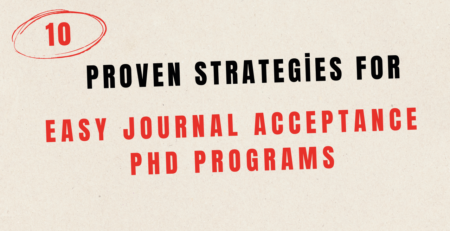How to Pick a PhD Research Topic
KENFRA Research Solutions2022-09-30T13:59:05+05:30Although there are many resources available to assist potential PhD candidates in locating doctorate programmes, selecting a research subject is a process that students frequently find more challenging.
Some PhD programmes that are advertised have titles that have already been agreed upon. These programmes typically only occur in the STEM fields, though they do exist in other fields as well. Projects that have received funding are more likely to have clear titles and organised goals and objectives.
Self-funded initiatives and those in the arts and humanities are less likely to have names that are well defined. Because there are many options for topics, candidates have more freedom to suggest research questions and tailor the subject to their personal interests.
Another option is for universities to promote financed PhD programmes in fields with no clear field of study, such as “PhD Studentship in Biomechanics.” After that, the applicant and project manager can work together to choose a title, such as “A study of fatigue and impact resistance of biodegradable knee implants.”
If a pre-established programme is not appropriate for you, you must suggest your own study topic. The factors listed in this article should be taken into account while selecting a decent research topic.Although there are many resources available to assist potential PhD candidates in locating doctorate programmes, selecting a research subject is a process that students frequently find more challenging.
Some PhD programmes that are advertised have titles that have already been agreed upon. These programmes typically only occur in the STEM fields, though they do exist in other fields as well. Projects that have received funding are more likely to have clear titles and organised goals and objectives.
Self-funded initiatives and those in the arts and humanities are less likely to have names that are well defined. Because there are many options for topics, candidates have more freedom to suggest research questions and tailor the subject to their personal interests.
Another option is for universities to promote financed PhD programmes in fields with no clear field of study, such as “PhD Studentship in Biomechanics.” After that, the applicant and project manager can work together to choose a title, such as “A study of fatigue and impact resistance of biodegradable knee implants.”
If a pre-established programme is not appropriate for you, you must suggest your own study topic. The factors listed in this article should be taken into account while selecting a decent research topic.Although there are many resources available to assist potential PhD candidates in locating doctorate programmes, selecting a research subject is a process that students frequently find more challenging.
Some PhD programmes that are advertised have titles that have already been agreed upon. These programmes typically only occur in the STEM fields, though they do exist in other fields as well. Projects that have received funding are more likely to have clear titles and organized goals and objectives.
Self-funded initiatives and those in the arts and humanities are less likely to have names that are well defined. Because there are many options for topics, candidates have more freedom to suggest research questions and tailor the subject to their personal interests.
Another option is for universities to promote financed PhD programmes in fields with no clear field of study, such as “PhD Studentship in Biomechanics.” After that, the applicant and project manager can work together to choose a title, such as “A study of fatigue and impact resistance of biodegradable knee implants.”
If a pre-established programme is not appropriate for you, you must suggest your own study topic. The factors listed in this article should be taken into account while selecting a decent research topic.

Selecting a Research Topic
To PhD students, our first piece of advice is to quit trying to “discover” a research topic because it is doubtful that you will. Instead, consider creating a research topic (from research and conversations with advisors).
Think about a few concepts and evaluate them:
- You must be able to convince people of the value of studying your chosen subject.
- You must have a sincere interest in the topic.
- To respond to the research question, you need to be capable and prepared.
- Set attainable and quantifiable goals and objectives.
- You must be able to accomplish your goals in the allotted time.
- Your research question ought to be unique and useful to the subject area.
- The main factors you should take into account when coming up with potential subjects have been listed. Below, we examine these:
Concentrate on your interests and professional goals.
It’s crucial to pick a study subject that piques your true interest. Your choice will influence the remainder of your career. A full-time programme lasts 3–4 years, so keep in mind that there may be difficulties along the way. If you are not passionate about your research, it will be tough for you to stay motivated throughout these trying times.
Additionally, consider your educational and professional background. If there were any undergraduate or graduate-level courses you took that you especially enjoyed or performed well in? These might be included in your PhD study subject. Similar to this, having professional work experience may cause you to ask questions that can only be resolved by further investigation.
Always keep your long-term career goals in mind while choosing a PhD research topic. A research project on black holes, for instance, would be more pertinent to you as a physicist if you wanted to become an astrophysicist than one on nuclear fission

Study thesis and scholarly publications
Finding possible PhD topics can be made much easier by reading published journals and dissertations. When examining previous studies, consider the following:
- What has been done, and what do the current findings indicate?
- What type of work—lab or field—was involved in earlier projects?
- How frequently are papers in the discipline published?
- Are the concepts you’re exploring novel?
- Is your research question worthwhile?
- Could I add to this research or give it my own spin?
You can gain insight into the practical parts of doctoral studies by reading dissertations. For example, you can find out the technique the author employed, how much data analysis was necessary, and how the information was presented.
This procedure can alternatively be seen as a small-scale literature review. You are looking for knowledge gaps and creating a PhD project to fill them. accentuate just-published works (e.g. in the last five years). Particularly, an examination of recent publications’ literature will provide a great summary of what is known currently and what research concerns still need to be solved.
If you have the chance to go to a conference for academics, take it! This is frequently a great approach to learn about the most recent research and industry theories. This knowledge could reveal a possible research idea or topic for further study.
Talk about potential research topics with a PhD advisor.
Talk to your supervisor about your potential study topics. This might be your present undergraduate or graduate advisor, or potential advisors for PhD programmes that are listed at
various schools. Bring your early PhD subject suggestions and research results from reading scholarly journals to these seminars. If you can show your PhD advisors that you have given your ideas some thought and are dedicated to your study, they will be more receptive to them.
You should talk about your areas of interest in research, what you have learned from reading publications, and what you propose to study. Supervisors with knowledge of your subject will
be able to advise you on the gaps in knowledge that are present, what is being done to fill them, and whether your proposed research ideas and active research are similar.
Speaking with asubject-matter authority can help you develop a more concrete study topic with distinct goals and objectives. Additionally, it might identify any weaknesses
in your PhD concepts
But it’s crucial to keep in mind that, while it’s wise to base your study topic on feedback, you shouldn’t let your supervisor choose one for you. A supervisor is more likely to suggest a topic title that lends itself to an academic career than one that interests you. A topic that interests a supervisor may not interest you.
Talking to a PhD candidate or researcher working on a related project is another suggestion. As an alternative, you can typically contact a suitable research group at your university. They can elaborate on their experiences and offer suggestions for what your PhD programme might entail in terms of daily tasks and difficulties
Examine advertising PhD programmes.
· What sort of PhD research areas are there?
· Are these concepts comparable to yours?
· Do any of these subjects appeal to you?
· What exactly do these programmes involve?
The popularity of PhD programmes with topics comparable to your proposed one is a reliable sign that colleges appreciate the field of study. Looking at listed ads can teach us possibly the most useful lesson, which is the last bullet point. Examine what such programmes entail and decide if you want to participate. If so, you could achieve this by choosing a related study topic
Research Proposal Writing
You might be required to submit a research proposal as part of the PhD application process in order to summarise your intended area of study. The title of your planned project, an Abstract, Background and Rationale, Research Aims and Objectives, Research Methodology, Timetable, and Bibliography are all included in this document that summarises your intended research.










Leave a Reply